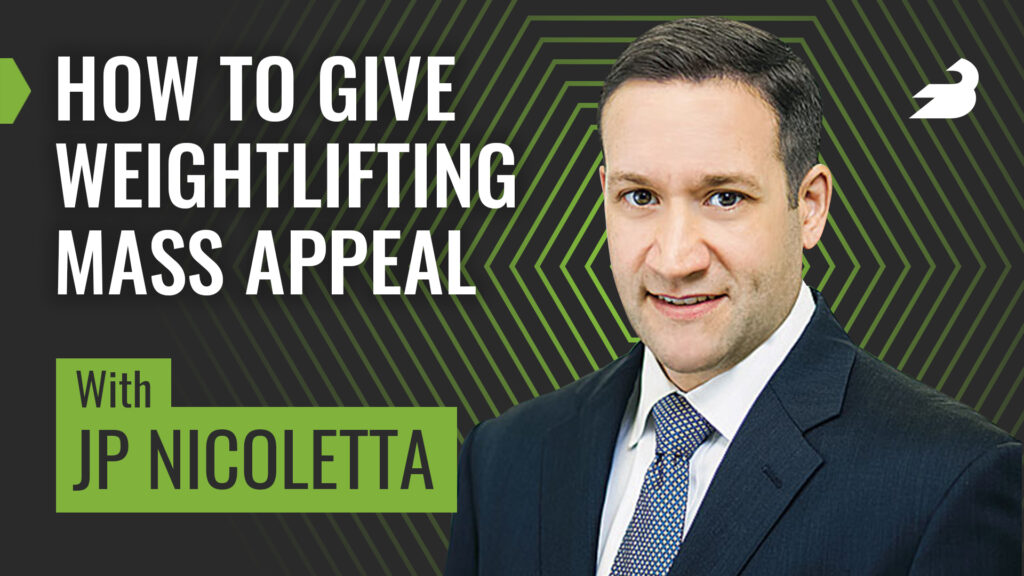Today I’m talking to a friend I’ve had the pleasure of working with for years. JP Nicoletta is USA Weightlifting’s Coaching Education Manager , and he’s perhaps even better known internationally as being one of the sport’s most accomplished color commentators. JP has pushed the boundaries of what weightlifting broadcasts can do to inform and make the sport more accessible for viewers. He’s also called some of history’s most impactful lifts and world records. We chat about what good commentary can do for strength sports and what’s next in the world of weightlifting broadcasts.

On this episode of The BarBend Podcast, host David Tao talks to JP Nicoletta about:
- Finding weightlifting on accident, and how the snatch and clean & jerk are more mainstream than ever (2:00)
- How the weightlifting community can be even more fun after your competition career (6:00)
- Joining USA Weightlifting full time (9:40)
- Discovering weightlifting color commentary and going from local to national to international competitions (12:00)
- The most memorable moments JP has called for weightlifting broadcasts (16:30)
- Improving weightlifting color commentary and how to make the sport more appealing for spectators (22:40)
Relevant links and further reading:
Editor’s Note: BarBend is the Official Media Partner of USA Weightlifting. The two organizations maintain editorial independence unless otherwise noted on specific content projects. This is one such project.